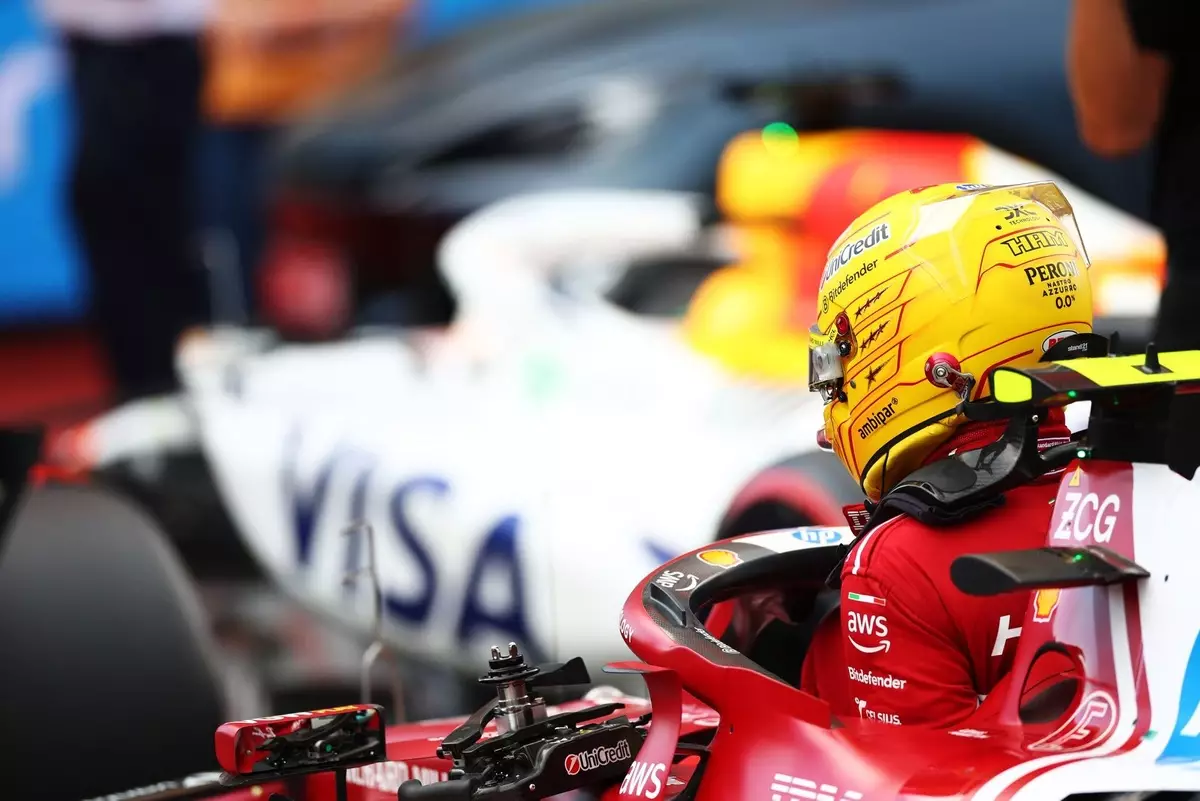Lewis Hamilton’s discontent echoed loudly in the aftermath of the Spanish Grand Prix, aptly described by the seven-time World Champion as “the worst race I’ve experienced.” The sentiment extends beyond mere frustration; it reveals a deep-rooted anxiety about performance as a renowned athlete who has consistently set higher benchmarks in Formula 1. The race at Barcelona took an unfortunate turn for Hamilton, who, despite a promising start, saw his position falter over the course of the event. Finishing sixth, and later gifted a fifth place due to Max Verstappen’s penalty, he found little solace in this minor improvement. This episode not only reflects on Hamilton’s individual struggle but also serves as a mirror to the evolving dynamics within the sport.
The Unexpected Turbulence
It is worth noting that Hamilton commenced the race with vigor, overtaking his teammate George Russell at Turn 1, which briefly painted an optimistic picture for Mercedes. However, this initial spark fizzled out as the laps progressed. By lap 10, a key decision compounded Hamilton’s woes: team orders came into play as Ferrari advised him to allow Charles Leclerc — Hamilton’s faster rival — to pass. This can be interpreted as a tactical blunder, further highlighting the vulnerabilities in both driver performance and team strategies. Struggling with rear grip from the outset painted a grim picture for Hamilton, as his car’s performance did not live up to the fiery passion that fuels his racing career.
The strategy around tire management illustrated a troubling gap in the Mercedes setup, as Hamilton’s competition remained steadfast, driving ahead while he languished behind. Becoming a “sitting duck” on used tires epitomized not only individual misfortune but also a broader trend in F1 that has seen the once dominant team facing mounting pressure from rivals like Ferrari. This raises questions about the internal dynamics at Mercedes, particularly with the shift in team morale as Hamilton remains caught in a nexus between legacy and present-day performance.
Leclerc’s Sweet Surprise
In stark contrast to Hamilton’s gloomy outlook, Charles Leclerc’s race signifies the unpredictable nature of motorsport. The joy embedded in his unexpected podium finish, especially after beginning the race in a less-than-ideal seventh place, tells a different story. While Hamilton experienced a downward spiral, Leclerc positioned himself strategically, transforming an otherwise uninspired weekend into one filled with newfound momentum, evidenced by his podium finish following an impressive overtake on Verstappen during the safety car restart.
This juxtaposition of outcomes speaks volumes about the randomness of racing — a reality where skill, strategy, and a sprinkle of luck converge. Leclerc’s post-race remarks are characterized by a measured satisfaction; he acknowledged that his team had underperformed across practice sessions and qualifying but transformed that disappointment into a rewarding race. Such adaptability is crucial in a sport as competitive as F1, where the finest margins can separate triumph from despair.
The Bigger Picture: What Lies Ahead for Hamilton?
Hamilton’s introspective refusal to engage in post-race reflections illustrates the mental toll that insecurity can exact on a driver of his caliber. The simplistic responses reveal frustration and can allude to potential rifts or areas of concern within the Mercedes team. As Hamilton gears up for the Canadian Grand Prix, the focus shifts not only to mechanical adjustments but also to the psychological resilience required to combat the challenges laid bare at Barcelona.
The disconnect between Hamilton and his car speaks to fundamental questions about competitive evolution in Formula 1. As the sport witnesses the rise of newer teams and drivers honing their skills, Hamilton’s struggles are indicative of larger shifts in driver-team dynamics. His journey forward will depend not just on technical improvements but also on rekindling the competitive fire that has defined his legacy for years.
In sum, the Spanish Grand Prix might have been a low point for Hamilton, but it raises pivotal questions for the future, urging a re-evaluation of strategies and approaches that could reshape both his career and the competitive landscape of Formula 1 as a whole.


Leave a Reply